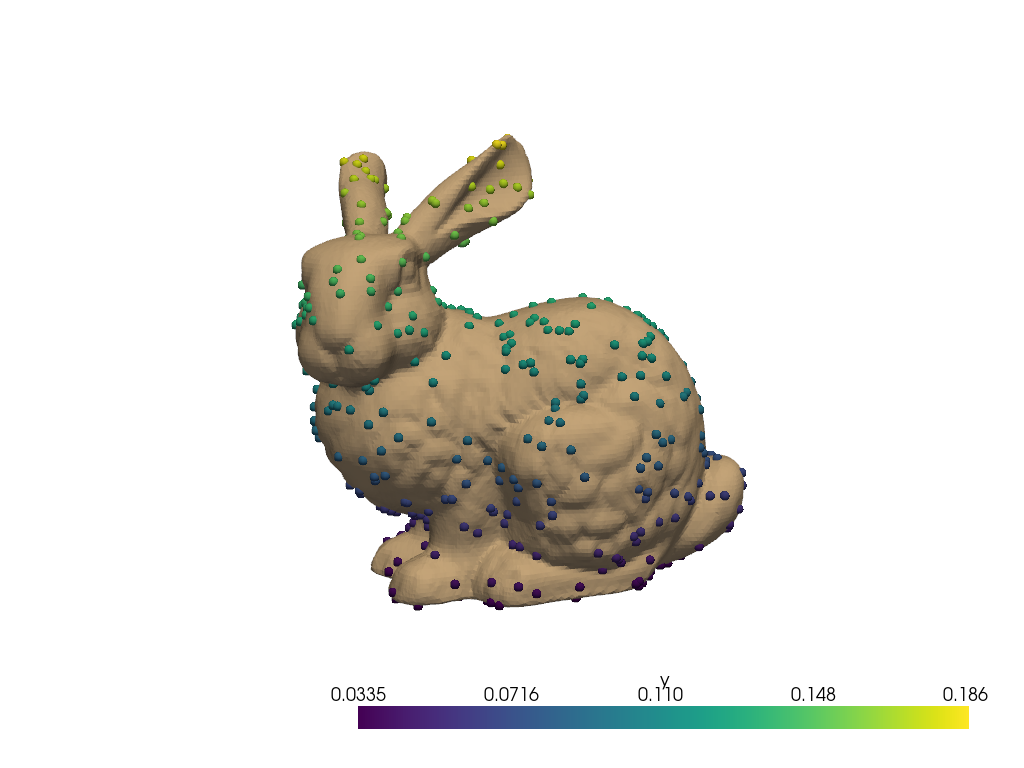pyransame.random_surface_dataset#
- pyransame.random_surface_dataset(mesh: DataSet, n: int = 1, weights: str | _SupportsArray[dtype[Any]] | _NestedSequence[_SupportsArray[dtype[Any]]] | bool | int | float | complex | bytes | _NestedSequence[bool | int | float | complex | str | bytes] | None = None) PolyData#
Generate random points on surface with sampled data.
Supported cell types:
Triangle
Triangle Strip
Pixel
Polygon
Quad
All cells must be convex.
- Parameters:
- meshpyvista.DataSet
The mesh for which to generate random points. Must have cells.
- nint, default: 1
Number of random points to generate.
- weightsstr, or array_like, optional
Weights to use for probability of choosing points inside each cell.
If a
stris supplied, it will use the existing cell data onmesh.
- Returns:
- pointspv.PolyData
(n, 3)points that exist inside cells onmeshand with sampled data.
Examples
>>> import pyransame >>> import pyvista as pv >>> from pyvista import examples >>> mesh = examples.download_bunny() >>> mesh['y'] = mesh.points[:, 1] >>> points = pyransame.random_surface_dataset(mesh, n=500)
Now plot result.
>>> cpos = [ ... (-0.07, 0.2, 0.5), ... (-0.02, 0.1, -0.0), ... (0.04, 1.0, -0.2), ... ] >>> pl = pv.Plotter() >>> _ = pl.add_mesh(mesh, color='tan') >>> _ = pl.add_points(points, scalars='y', render_points_as_spheres=True, point_size=10.0) >>> pl.show(cpos=cpos)
